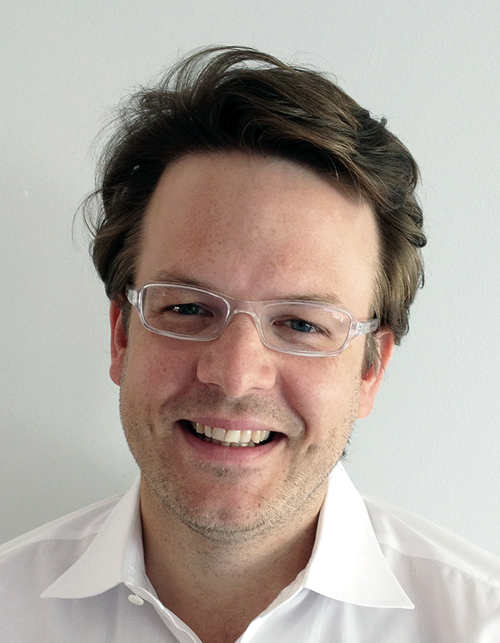'Hands down the most talented young investigator in lipid biology’
Tobias Walther, associate professor at the Yale School of Medicine, is the winner of the American Society of Biochemistry and Molecular Biology’s 2013 Walter A. Shaw Young Investigator Award in Lipid Research.

“I feel very honored and humbled by ASBMB rewarding our work on lipid homeostasis and storage with the Walter A. Shaw award. It is great to follow in the tradition of many excellent scientists, and I look forward to the discoveries to come.”
Throughout his career, Walther has worked on numerous cell biology problems, but a main focus is on cellular lipid droplets. His work on the subject has helped to propel lipid droplets into an important interest in cell biology with vast implications in multiple fields.
Together with his scientific partner, Robert Farese Jr. at the Gladstone Institutes and the University of California, San Francisco, Walther’s laboratory has been pioneering the domain. The team used a combination of systematic approaches, including RNAi screening, quantitative proteomics and cutting-edge microscopy to work out many mechanisms of LD formation and growth. One of his most recent achievements involved the use of proteomics data leading to the discovery of a feedback system that regulates phosphatidylcholine synthesis and LD growth.
Walther published his first paper as an exchange undergraduate student at the Southern Methodist University in Dallas. He obtained his Ph.D. in 2002 at the Ludwig-Maximilians University of Munich, working at the European Molecular Biology Laboratory, where he identified factors of nuclear pores assembly. He then joined the University of California at San Francisco for his postdoctoral training, during which time he studied plasma membrane organization and began his work on lipid droplets. From 2006 until 2010, he was group leader at the Max Planck Institute of Biochemistry in Martinsried, Germany.
Peter Espenshade, winner of the 2012 award, said in his nomination letter of Walther that in addition to Walther’s scientific contributions, “he has an amazing ability to effectively collaborate with others.” Farese said of Walther, “Put simply, I think he is an immensely talented scientist and hands down the most talented young investigator in lipid biology.”
Walther received his award and delivered an award lecture during the Experimental Biology 2013 conference in Boston.
Enjoy reading ASBMB Today?
Become a member to receive the print edition four times a year and the digital edition monthly.
Learn moreGet the latest from ASBMB Today
Enter your email address, and we’ll send you a weekly email with recent articles, interviews and more.
Latest in People
People highlights or most popular articles

Sketching, scribbling and scicomm
Graduate student Ari Paiz describes how her love of science and art blend to make her an effective science communicator.

Embrace your neurodivergence and flourish in college
This guide offers practical advice on setting yourself up for success — learn how to leverage campus resources, work with professors and embrace your strengths.

Survival tools for a neurodivergent brain in academia
Working in academia is hard, and being neurodivergent makes it harder. Here are a few tools that may help, from a Ph.D. student with ADHD.

Quieting the static: Building inclusive STEM classrooms
Christin Monroe, an assistant professor of chemistry at Landmark College, offers practical tips to help educators make their classrooms more accessible to neurodivergent scientists.

Hidden strengths of an autistic scientist
Navigating the world of scientific research as an autistic scientist comes with unique challenges —microaggressions, communication hurdles and the constant pressure to conform to social norms, postbaccalaureate student Taylor Stolberg writes.

Richard Silverman to speak at ASBMB 2025
Richard Silverman and Melissa Moore are the featured speakers at the ASBMB annual meeting to be held April 12-15 in Chicago.

